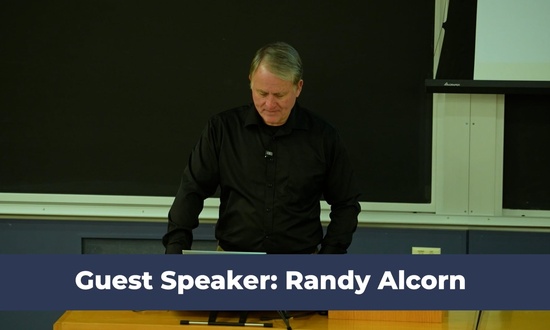The primary passage of Scripture that talks about storing up treasures in Heaven is Matthew 6:19-21, where Jesus tells us to transfer our wealth from one place to another:
“Do not lay up for yourselves treasures on earth, where moth and rust destroy and where thieves break in and steal, but lay up for yourselves treasures in heaven, where neither moth nor rust destroys and where thieves do not break in and steal. For where your treasure is, there your heart will be also.”
When we die, earthly treasure will no longer be ours, but wealth we’ve transferred to Heaven will remain ours forever.
The treasures on earth of Matthew 6 are material things. The treasures in Heaven are eternal rewards in a near context of financial giving. How does one store up treasures in Heaven? The most obvious answer is through giving, which as a spiritual discipline, along with fasting and praying, has been Christ’s subject matter.
Unfortunately, some commentaries and several sermons I’ve heard and read on Matthew 6:19–21 are remarkably vague as to its meaning. They spiritualize the passage, divorcing it from its context and failing to connect it to its parallel passages. They interpret Christ’s words as a general call to be kingdom-minded and say He makes no reference to giving away material goods.
Certainly, the passage would be far easier to fulfill if it merely required good intentions on our part. Instead, it calls us to radical acts of generosity. We dare not let our convenience and culture—including church culture—dictate our interpretation.
Craig Blomberg states in the New American Commentary on Matthew, “In this context…storing up treasures focuses particularly on the compassionate use of material resources to meet others’ physical and spiritual needs, in keeping with the priorities of God’s kingdom.”
The interpretation of Matthew 6 I advocate is emphatically supported by Paul’s statements in 1 Timothy 6, where he borrows the words of Jesus “lay up treasures for themselves”:
“Command those who are rich in this present world not to be arrogant nor to put their hope in wealth…Command them to do good, to be rich in good deeds, and to be generous and willing to share. In this way they will lay up treasure for themselves as a firm foundation for the coming age…”
“In this way” points back to doing good deeds and specifically being generous and willing to share, which are clearly about financial giving and material generosity. Financial giving is said to be a means of laying up treasure in Heaven. For Paul to speak of laying up treasure—and not only treasure but for themselves in the age to come (in Heaven)—seems an unmistakable allusion to Christ’s words in Matthew 6. I think it also demonstrates Paul’s understanding of what Jesus said.
The Matthew 6 passage and its parallels in Matthew 19, Mark 12, Luke 12, and 1 Timothy 6 show a direct connection between actually giving away money, which God in turn regards as or rewards as treasure in Heaven. Of course, Christ’s words can be broadly applied to how we use our time and abilities. But we must not deny or neglect His primary meaning concerning giving away our money and possessions.
The Bible shows that anything we put in God’s hands is an investment in eternity. That certainly includes money but is not limited to it. Giving our all to God includes our time, talents, efforts, and relationships. Every aspect of our lives must be at Christ’s disposal; that’s what it means to be His disciple (Luke 14:33).
God will reward us for more than financial giving. He will also give us eternal rewards for doing good works (Ephesians 6:8; Romans 2:6, 10), persevering under persecution (Luke 6:22–23), showing compassion to the needy (Luke 14:13–14), and treating our enemies kindly (Luke 6:35).
The way to lay up treasures in Heaven includes giving away our money and possessions but of course is not limited to it. Scripture teaches that those things which we keep can also serve kingdom purposes. They can be generously shared and invested and used in ways that serve eternal purposes, that further God’s kingdom for His glory rather than just building our own little kingdoms for our own glory.
See also:
Does Giving Time or Goods Instead of Money Earn the Same Eternal Reward?
Why Do You Believe the Word ‘Treasure’ in Matthew 6 Refers Specifically to Money and Possessions?






